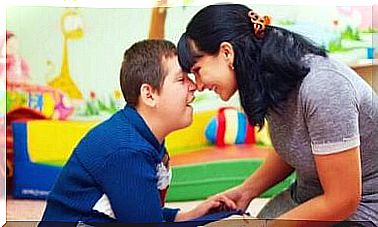How To Encourage Resilience In Children?

Fostering resilience in children is providing the emotional tools that help little ones deal with the adversity and setbacks they will encounter throughout their lives.
When we educate children to remain balanced, sensible in the face of pressure, we are forming successful human beings who will know how to control both their impulses and the reaction to other events to come.
Resilience must be understood as a skill. It is an innate method of people trained not to be intimidated by problems, people who are not shaken by defeats and, therefore, do everything to control the situation and overcome themselves.
So you can help your child become one of these people, I decided to write this post.
Why teach children to be strong in the face of adversity?
Nobody is free from exposure to traumatic situations because pain and suffering are part of life.
From a very young age, children face problems that allow them to learn. In fact, they learn best when they face barriers that force them to overcome themselves and look for new alternatives to achieve any purpose.

Let’s say that a baby who crawls through a room without obstacles does not receive the same stimuli as those who encounter pillows and cardboard boxes that make him turn, step over, under, or turn around.
In day care centers, for example, children must face conflicts with their peers, see that their wishes are not immediately met, and deal with separation anxiety due to distance from their parents. In addition, they will come across new teachings that may be more difficult to assimilate, such as holding a spoon well, tying shoes, having motor coordination to make a circle…
All of these can be stressful times that require extra effort. Whether children succeed or not and start to cry depends on their resilience.
The ability to recover, overcome or adapt to unexpected events that transform your daily life, as well as the ability to face challenges, will depend on the resilience of each one.
How to encourage resilience in children?
Children’s capacity for resilience determines, both in the short and long term, how happy or unhappy they can be.

To increase your child’s resilience we recommend that you teach:
- To commit to duties. Have respect for each of your goals and be aware that he is responsible for achieving them. Studying, keeping the room in order, putting away toys, cleaning shoes, dusting, helping in the garden… The child cannot ask others, in this case the parents or another family member, to do the tasks that belong to them. . As is the case with homework or household chores.
- The importance of effort. Teach not to settle for a 9 when you could get a 10 if you studied a little harder . Your child must be constant and learn that commitment to each goal will lead to success.
- What does the word challenge mean. Setting higher and higher goals for yourself will help you grow . Those who challenge themselves use their physical and cognitive qualities, but do not conform to them. It tries to surpass itself to further develop its capabilities. For example, if your child has been training a lot and your football team ended up winning the regional championship, he should look to improve his plays and learn new ones in order to win the state championship.
- About self-esteem. Self-love and positive self-worth are the basis for him to feel secure in his qualities and to take the initiative. If your child has good self-esteem, he will know his abilities and will know that he is prepared to face the adversities that lie ahead!
- To be independent. It’s okay to take you as an example and seek your support. But you must teach your child to work and think for himself. He must become an independent person who is not always under his protection and is not afraid to expose himself. We have to be like that when we’re adults, so it’s good for your child to practice now, don’t you think?
- Beating emotional pain. The child must learn that the pain of the death of a loved one, rejection, not getting what he wanted, or not passing an exam must be dealt with as all other problems are faced. For example, teach that while it is sad that Grandma is no longer by your side, death is as natural as birth; that although it hurts he shouldn’t allow it to intimidate him. Remind him that there will always be a pleasant memory of all the time she lived with him, how pleasant the moments they spent together were and how much he loved her . Teach more than mourning death. Teach to dedicate yourself while still alive, to appreciate and enjoy the moments you have with your loved ones.
Here at Sou Mama, we believe that fostering resilience in children should be part of education at home. It is not to pamper and educate children with the feeling that they are worthy of anything.
You have to show your children the value of spiritual and economic wealth and how to get it. Know and respect danger. Face fate no matter what. Raise them to be strong and not afraid of the world around them.








